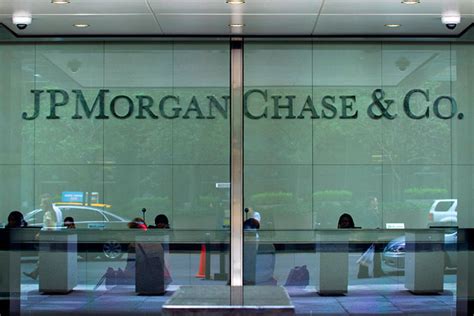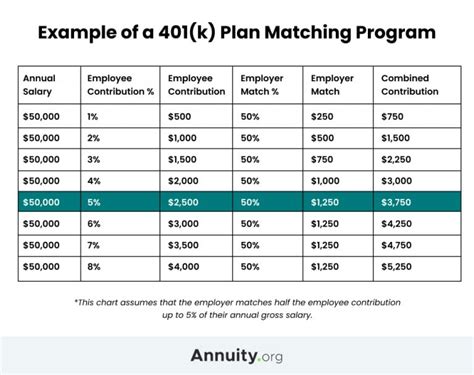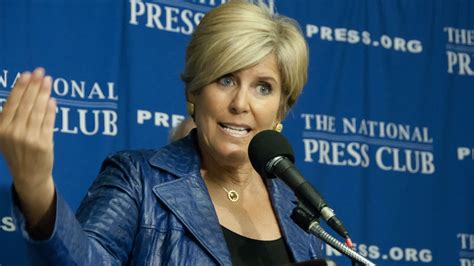
JPMorgan Chase is cracking down on the practice of graduating students accepting multiple job offers, a trend known as “double-dipping,” and then reneging on agreements as better opportunities arise. The firm is now implementing stricter measures, including potentially blacklisting students who break their commitments, to combat the issue that has become increasingly prevalent in the competitive job market for new graduates.
JPMorgan Chase is taking a firm stance against the growing trend of graduating students accepting multiple job offers, a practice commonly referred to as “double-dipping.” The financial giant is implementing stricter policies to address the issue, including the potential for blacklisting students who accept offers and then back out, signaling a significant shift in how Wall Street firms are handling reneged commitments. The move comes as firms grapple with an increasingly competitive landscape for attracting top talent, particularly in fields like technology and finance, where the demand for skilled graduates far outweighs the supply. This crackdown reflects a broader concern among employers about the ethical implications and logistical challenges posed by students who exploit the system to maximize their options.
The increased prevalence of double-dipping has forced JPMorgan Chase to re-evaluate its approach to managing graduate recruitment. The firm’s new policy aims to protect its investments in recruiting and training new hires, as well as to maintain the integrity of its employment agreements. By potentially blacklisting offenders, JPMorgan is sending a clear message that such behavior will not be tolerated and that it values commitment and professionalism above all else. The specific criteria for blacklisting remain somewhat opaque, but it is understood that students who accept offers, complete background checks and onboarding paperwork, and then withdraw at a late stage are most at risk. This action not only disrupts the firm’s planning but also prevents other qualified candidates from securing those positions.
According to insiders, the decision to implement these stricter measures was not taken lightly. JPMorgan Chase has invested significant resources in its graduate recruitment programs, including attending university career fairs, conducting extensive interviews, and providing onboarding and training. When students accept offers and then renege, it results in wasted time, money, and effort for the firm. Furthermore, it creates uncertainty and instability within teams, as managers must scramble to fill vacant positions at short notice.
The crackdown by JPMorgan Chase underscores a growing frustration among employers across various industries. As the job market becomes more competitive, students are increasingly tempted to accept multiple offers to keep their options open. However, this practice can have serious consequences, not only for the students themselves but also for the employers who rely on their commitment. Other major financial institutions are likely watching JPMorgan’s response closely and may follow suit if the new policies prove effective in curbing double-dipping. This collective action could potentially reshape the landscape of graduate recruitment and set new expectations for professionalism and ethical conduct.
The new policies are not without their critics. Some argue that they are too harsh and that they unfairly penalize students who may have legitimate reasons for changing their minds. Others contend that the power dynamic between employers and employees is already heavily skewed in favor of the former, and that these policies further exacerbate the imbalance. However, JPMorgan Chase maintains that its primary goal is to protect its interests and to ensure that it can rely on the commitments of its new hires. The firm believes that by taking a strong stance against double-dipping, it can create a more stable and predictable recruitment process.
The implications of JPMorgan’s crackdown extend beyond the immediate impact on students and the firm itself. The move could potentially influence the behavior of other employers, leading to a more standardized approach to managing graduate recruitment. It could also prompt universities to re-evaluate their career counseling services and to provide students with more guidance on ethical decision-making in the job market. Ultimately, the goal is to create a more transparent and equitable system where both employers and employees are held to a higher standard of accountability.
The broader economic context also plays a significant role in shaping the dynamics of graduate recruitment. As the economy fluctuates and job markets become more volatile, students are understandably anxious about securing their future employment. This anxiety can lead them to make decisions that they might not otherwise consider, such as accepting multiple offers as a safety net. However, it is important for students to understand the potential consequences of their actions and to weigh the risks and benefits carefully. JPMorgan Chase’s crackdown serves as a reminder that ethical conduct and professional integrity are highly valued in the business world, and that short-term gains should not come at the expense of long-term reputation.
In addition to the potential for blacklisting, JPMorgan Chase is also exploring other measures to deter double-dipping. These may include requiring students to sign more binding agreements, conducting more thorough background checks, and communicating more frequently with students throughout the recruitment process. The firm is also working to strengthen its relationships with universities and to collaborate with them on developing ethical guidelines for students entering the job market. By taking a multi-faceted approach, JPMorgan hopes to create a culture of commitment and accountability that will discourage double-dipping and promote professionalism among its new hires.
The issue of double-dipping is not unique to the financial industry. It is a growing concern across various sectors, including technology, consulting, and engineering. As the demand for skilled workers continues to rise, employers are facing increasing challenges in retaining their new hires. This has led to a renewed focus on employee engagement and retention strategies, as companies strive to create a more attractive and supportive work environment. JPMorgan Chase’s crackdown on double-dipping is just one example of how employers are adapting to the changing dynamics of the job market.
The long-term impact of JPMorgan Chase’s crackdown remains to be seen. However, it is clear that the firm is taking a proactive approach to addressing the issue of double-dipping and that it is committed to protecting its interests and maintaining the integrity of its recruitment process. Whether other employers will follow suit remains to be seen, but it is likely that the discussion around ethical conduct and professional responsibility in the job market will continue to intensify in the coming years. Students entering the workforce should be aware of these changing expectations and should strive to conduct themselves with integrity and professionalism at all times.
Expanded Details and Context
The move by JPMorgan Chase highlights an intensifying battle for top talent in the finance and technology sectors, where demand for skilled graduates often outstrips supply. This imbalance can incentivize students to accept multiple offers, a practice that, while seemingly advantageous for the individual, can create significant disruption and cost for employers. The firm’s decision to potentially blacklist students who renege on accepted offers underscores the high stakes involved in securing and retaining qualified personnel in a competitive market.
This isn’t merely about filling positions; it’s about the substantial investment firms make in recruiting, training, and onboarding new hires. These investments include everything from attending university career fairs and conducting extensive interviews to providing specialized training programs designed to integrate graduates into the firm’s culture and operations. When a student accepts an offer and then backs out, particularly at a late stage, it jeopardizes this investment and forces the company to scramble to find a replacement, often under tight deadlines.
The potential consequences of double-dipping extend beyond the immediate financial costs. It can also impact team morale and productivity, as existing employees may have to shoulder additional responsibilities while the vacant position remains unfilled. Furthermore, it can damage the firm’s reputation among universities and other recruitment sources, making it more difficult to attract top talent in the future.
JPMorgan Chase’s hard-line stance reflects a broader concern among employers about the erosion of professional ethics and the increasing prevalence of short-term thinking among young professionals. While some argue that students are simply acting in their own best interests by maximizing their options, others contend that accepting an offer constitutes a binding agreement, and that reneging on that agreement is both unethical and unprofessional.
The debate over double-dipping also raises questions about the role of universities in preparing students for the job market. Some argue that universities have a responsibility to educate students about ethical conduct and professional responsibility, and to discourage them from engaging in practices that could harm their reputation or the reputation of the institution. Others maintain that universities should primarily focus on providing students with the skills and knowledge they need to succeed, and that it is up to employers to enforce their own ethical standards.
The increasing complexity of the job market has also contributed to the rise of double-dipping. In a rapidly changing economy, students are faced with a multitude of career options and a high degree of uncertainty about the future. This can lead them to adopt a more opportunistic approach to job hunting, accepting multiple offers as a way to hedge their bets and keep their options open. However, this approach can also backfire, as employers become more wary of students who are perceived as unreliable or uncommitted.
The potential for blacklisting represents a significant deterrent for students considering double-dipping. Being blacklisted by a major financial institution like JPMorgan Chase could have long-lasting consequences for their career prospects, making it more difficult to secure employment in the future. This is particularly true in the highly interconnected world of finance, where reputation and networking play a crucial role in career advancement.
However, the decision to blacklist students is not without its critics. Some argue that it is too harsh and that it unfairly penalizes students who may have legitimate reasons for changing their minds. For example, a student may receive a better offer from another company, or they may experience a personal or family emergency that necessitates a change of plans. In such cases, blacklisting could be seen as an overly punitive response.
JPMorgan Chase maintains that its policy is not intended to punish students for making difficult decisions, but rather to protect the firm’s interests and to ensure that it can rely on the commitments of its new hires. The firm believes that by clearly communicating its expectations and enforcing its policies consistently, it can create a more transparent and equitable recruitment process.
The firm’s decision to crack down on double-dipping also reflects a growing recognition that employee retention is just as important as recruitment. In a competitive job market, it is essential for employers to create a work environment that is both challenging and rewarding, and to provide employees with opportunities for growth and development. By investing in its employees and fostering a culture of commitment and loyalty, JPMorgan Chase hopes to reduce the likelihood of double-dipping and to retain its top talent for the long term.
The long-term impact of JPMorgan Chase’s crackdown on double-dipping remains to be seen. However, it is clear that the firm is taking a proactive approach to addressing the issue and that it is committed to protecting its interests and maintaining the integrity of its recruitment process. Whether other employers will follow suit remains to be seen, but it is likely that the discussion around ethical conduct and professional responsibility in the job market will continue to intensify in the coming years. Students entering the workforce should be aware of these changing expectations and should strive to conduct themselves with integrity and professionalism at all times.
The firm’s action serves as a wake-up call to students, universities, and other employers alike, highlighting the importance of ethical conduct and professional responsibility in the job market. By taking a firm stance against double-dipping, JPMorgan Chase is sending a message that it values commitment and integrity above all else, and that it is willing to take action to protect its interests and maintain the integrity of its recruitment process. The consequences of this crackdown will undoubtedly shape the future of graduate recruitment and set new standards for professionalism in the workplace.
The evolving landscape of recruitment also brings forth the importance of transparent communication between employers and potential employees. Students should be encouraged to engage in open dialogue with recruiters about their career aspirations and potential concerns, and employers should strive to provide clear and realistic expectations regarding job responsibilities, compensation, and career development opportunities. This mutual transparency can help to build trust and foster a stronger sense of commitment, reducing the likelihood of double-dipping and promoting a more positive and productive work environment.
Furthermore, the rise of double-dipping underscores the need for universities to adapt their career counseling services to better prepare students for the complexities of the modern job market. Universities can play a crucial role in educating students about ethical conduct, professional responsibility, and the potential consequences of their actions. By providing students with comprehensive guidance and support, universities can help them to make informed decisions and to navigate the job market with confidence and integrity.
The crackdown by JPMorgan Chase also serves as a reminder that the job market is a two-way street. While employers have a responsibility to treat their employees fairly and to provide them with opportunities for growth and development, employees also have a responsibility to uphold their commitments and to act with integrity and professionalism. By fostering a culture of mutual respect and accountability, both employers and employees can contribute to a more positive and productive work environment.
In conclusion, JPMorgan Chase’s crackdown on double-dipping represents a significant development in the world of graduate recruitment. By taking a firm stance against this unethical practice, the firm is sending a clear message that it values commitment, integrity, and professional responsibility above all else. The consequences of this crackdown will undoubtedly shape the future of graduate recruitment and set new standards for professionalism in the workplace. It is a wake-up call to students, universities, and other employers alike, highlighting the importance of ethical conduct and transparency in the job market. As the job market continues to evolve, it is essential for both employers and employees to adapt to these changing expectations and to strive to create a more equitable and sustainable work environment.
Frequently Asked Questions (FAQ)
1. What is “double-dipping” in the context of graduate job offers?
Double-dipping refers to the practice where graduating students accept multiple job offers from different companies with the intention of keeping their options open. These students may continue interviewing with other companies even after accepting an offer, and then renege on their initial agreement if a more attractive opportunity arises. This can leave the initial employer in a difficult position, having to scramble to find a replacement at short notice. “The practice of students accepting multiple job offers before making a final decision.”
2. Why is JPMorgan Chase cracking down on this practice?
JPMorgan Chase is cracking down on double-dipping because it results in significant financial losses and operational disruptions for the firm. The company invests considerable resources in recruiting, training, and onboarding new hires, and when a student backs out after accepting an offer, it wastes those investments. “JPMorgan Chase has invested significant resources in its graduate recruitment programs, including attending university career fairs, conducting extensive interviews, and providing onboarding and training. When students accept offers and then renege, it results in wasted time, money, and effort for the firm.” Additionally, it can negatively impact team morale and productivity, as existing employees may have to cover the responsibilities of the vacant position.
3. What measures is JPMorgan Chase implementing to combat double-dipping?
JPMorgan Chase is implementing stricter policies, including the potential for blacklisting students who accept offers and then back out. This means that students who engage in double-dipping may be barred from future employment opportunities at JPMorgan Chase. The firm may also require students to sign more binding agreements, conduct more thorough background checks, and communicate more frequently with students throughout the recruitment process to ensure commitment.
4. What are the potential consequences for students who are blacklisted by JPMorgan Chase?
Being blacklisted by JPMorgan Chase could have significant long-term consequences for a student’s career prospects. It could make it more difficult to secure employment in the finance industry, as other firms may view the student as unreliable or untrustworthy. The financial industry is highly interconnected, so a negative reputation can spread quickly. “Being blacklisted by a major financial institution like JPMorgan Chase could have long-lasting consequences for their career prospects, making it more difficult to secure employment in the future. This is particularly true in the highly interconnected world of finance, where reputation and networking play a crucial role in career advancement.” While it might not completely derail a career, it can certainly present a significant obstacle.
5. Is double-dipping a widespread problem, and is JPMorgan Chase the only company addressing it?
Yes, double-dipping is a growing concern across various industries, including technology, consulting, and engineering. While JPMorgan Chase’s crackdown is notable, other companies are also likely exploring ways to address the issue. As the demand for skilled workers continues to rise, employers are facing increasing challenges in retaining new hires. This has led to a renewed focus on employee engagement and retention strategies, as companies strive to create a more attractive and supportive work environment. “The issue of double-dipping is not unique to the financial industry. It is a growing concern across various sectors, including technology, consulting, and engineering.”









